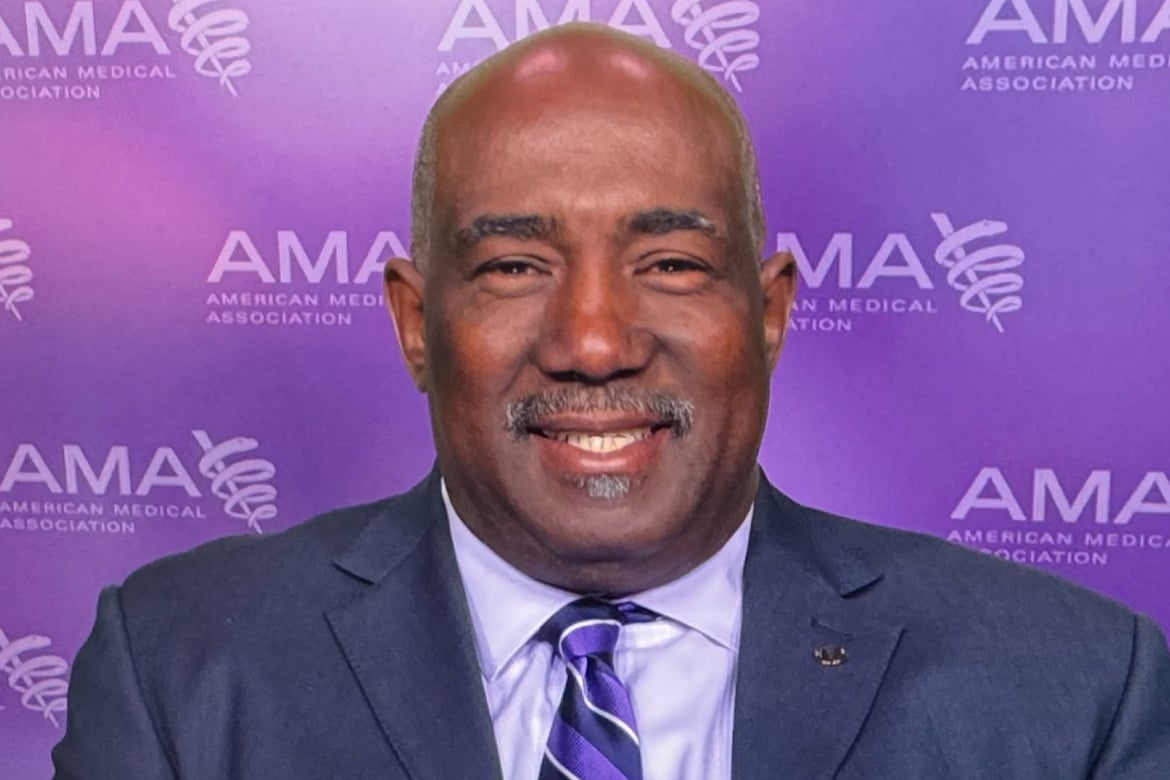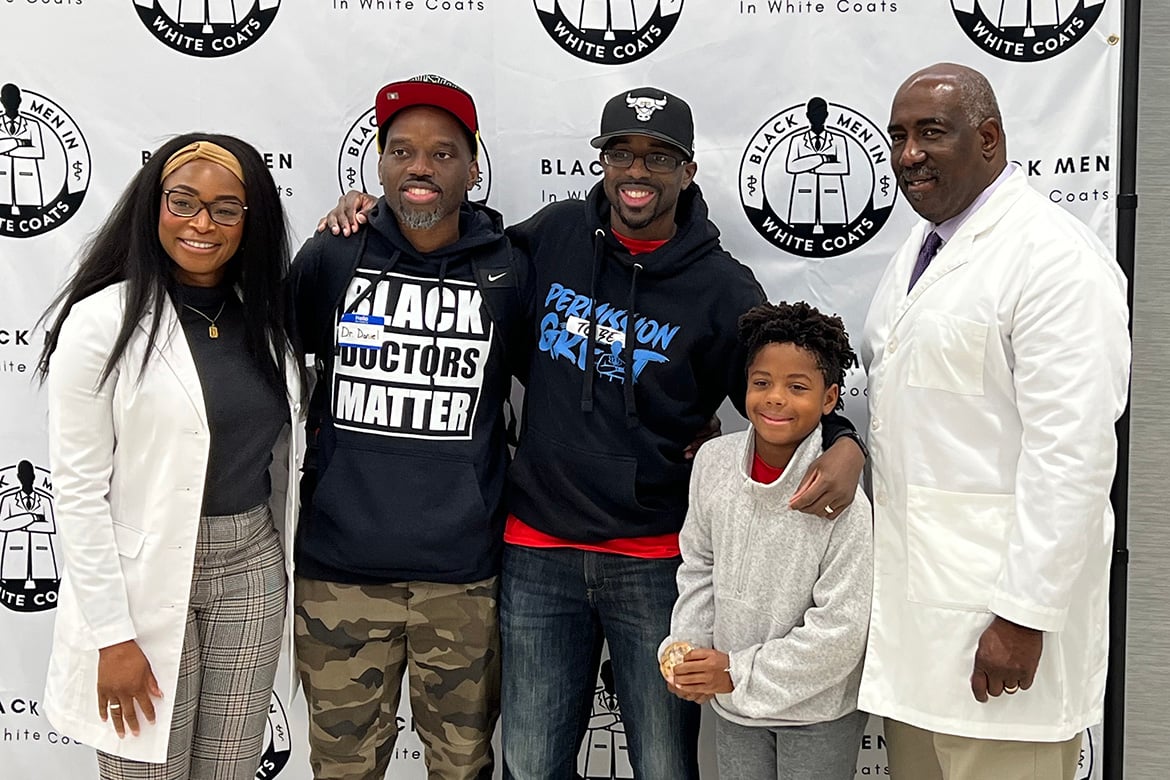Elections will be held at the Annual Meeting of the House of Delegates on June 10, 2025.
Officers and five councils are elected by the American Medical Association House of Delegates (HOD) at the Annual Meeting. The elections are conducted during a special election session under the supervision of the Committee on Rules and Credentials and the chief teller, who are appointed by the speakers. The speaker and vice speaker are responsible for overall administration of the elections. Voting is conducted by secret ballot.
Willie Underwood, III, MD, MSc, MPH
Candidate for President-elect
Term
2025-2026
Enough is enough—Stop messing with physicians
We have been facing cuts to the Medicare Physician Fee Schedule for years, forcing some physicians to stop taking new Medicare patients, to drop Medicare altogether, or even close their practices completely. To make matters worse, Medicaid has been chronically underfunded. Now, we are hearing that Medicaid cuts are on the horizon. When will it stop?
On top of this, insurance companies continue to play games with our patients' health by making us jump through too many hoops. Every minute we spend on prior authorization is a minute we can’t spend with our patients—making them healthier and helping them to live their best lives. I have one thing to say to this—ENOUGH!
Like many of you, I decided to become a physician because I wanted to help people, since that was what the smartest, most creative and thoughtful people were doing. It is a privilege to take care of patients. Saving a life is one of the best feelings someone can experience. There is no greater contribution that can be made to society. It is not right that we treat doctors this way. Our work is valuable. We should be treated like we are valued. We need to be paid fairly for the contribution we make—WHICH IS HUGE.
Our patients literally trust us with their lives. We need insurance companies to give us the same level of trust and stop killing us with paperwork at the expense of great patient care. We need them to stop putting profits over patients.
Speaking for physicians with one voice
I have to tell you, I love it when we come together for our House of Delegates meetings. We have representation from every specialty and all 50 states. We get to talk about the most pressing issues facing physicians. We certainly hear policy proposals where most physicians are clearly aligned. We also discuss resolutions that prompt spirited debate and get to hear a wealth of perspectives. Respectful debate is healthy. It makes us stronger. At each meeting, I always end up walking away with a different perspective after hearing passionate physicians provide a different perspective.
Many of you have heard me say, “It is the House that makes policy, and the Board that executes the policy created by the House.” In the end, it is the majority that rules, but the minority is heard and respected. This process helps us craft the best policy to chart forward on behalf of our patients and physicians.
One lesson I learned years ago as a young leader was the importance of speaking with one voice. It’s the only way to lead. If leadership is fractured, it creates an opportunity to divide us when our strength is in our unity. When I had the privilege to serve as board chair, I spent a lot of time building consensus to create and execute our strategy. It took a lot of work, but I believe my efforts helped to create a more unified board that felt engaged and passionate about the path forward.
As your president, I will use the same approach. Budget neutrality was a strategy that our opponents created to pit one specialty against another. We need a better way. Unity is the only path forward. A scope of practice issue facing one specialty is an encroachment on all our specialties. When we approach problems by speaking with one voice, it makes all physicians stronger.
An accomplished health services researcher
Making health care accessible for all our patients
As a health services researcher, much of my work has focused on trying to understand why certain patient demographics tend to correlate with worse health outcomes. We know that patients who live near high-traffic areas are more likely to have asthma. Similarly, our patients who need to take three buses to get to the only in-network pharmacy that happens to be closed on the weekends will have a harder time filling their prescriptions and taking the medications we prescribe. To me, these structural barriers are infuriating. We know that these barriers are a driver for poorer patient outcomes.
All too often, physicians are not given the resources or tools needed to overcome these barriers. At the same time, we are being held accountable for the outcomes as part of value-based care. Let’s stop blaming the physician and fix the system.
Physicians are great problem solvers—we all know this to be true! But we have to fix the system. Too often, physicians are being asked to solve impossible problems that cannot be fixed in a 15-minute physician encounter, especially when we also have to manage chronic diseases and navigate a complex health system. All our patients deserve to have excellent care! We need to support changing the system so everyone has the ability to live their best and healthiest lives.
All in this together
Additional resources
- Visit the AMA elections page for information on other candidates running for office.
- Find up to date information for the June Annual Meeting of the HOD.






